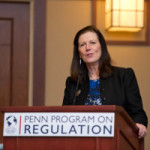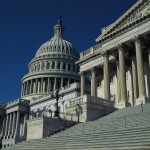
The Regulatory Review celebrates the end of 2015 by featuring the top opinion posts by regulatory and administrative law experts from the past year.
As the new year arrives, The Regulatory Review would like to reflect on the many important regulatory developments and debates that occurred in the United States and around the world in 2015. We also want to recognize some of the excellent work we had the privilege to feature on The Regulatory Review this past year. From Monday, December 28th through Wednesday, December 30th, we are presenting the top essays published on The Regulatory Review over the past twelve months, based on the number of page views for the work appearing in each of our opinion, news, and analysis sections.
Today we feature, in alphabetical order by author, the top opinion stories from 2015. Visit our “Regulatory Year in Review” series main page for information about the top news and analysis stories.
 FERC Demand Response Resource Order May Be Heading to the Supreme Court
FERC Demand Response Resource Order May Be Heading to the Supreme Court
Todd Aagaard (Villanova University School of Law) and Joel B. Eisen (University of Richmond School of Law) | January 22
A recently invalidated Federal Energy Regulatory Commission (FERC) order regarding demand response resources may be heading toward possible resuscitation in the Supreme Court. Demand response refers to a reduction in expected electricity use in reaction to either a higher price or an incentive payment.
Annice Brave (2011 Illinois Teacher of the Year) | January 19
When I think of the backlash against CCSS, it is difficult for me to understand all the opposition to a set of high standards that are consistent across states. These standards provide “teachers, parents, and students with a set of clear expectations to ensure that all students have the skills and knowledge necessary to succeed in college, career, and life upon graduation from high school, regardless of where they live.”
 The Common Core is a Remedy Worse than the Disease
The Common Core is a Remedy Worse than the Disease
Anthony Cody (Author, The Educator and the Oligarch, a Teacher Challenges the Gates Foundation) | January 13
The Common Core standards are a clear case of federal overreach, facilitated by corporate philanthropies acting to circumvent democratic process. The standards are themselves deeply flawed as a result, and they are embedded in an accountability system that is causing grave harm to students.
Cary Coglianese (Penn Law School) | January 1
The specific controversies and events looming ahead for the president and the nation in the coming year cannot be fully predicted, but one thing is certain: policymaking in Washington in 2015 will experience more conflict between the legislative and executive branches of government, with potentially significant opportunities for the judicial branch to weigh in.
What Volkswagen Reveals about the Limits of Performance-Based Regulation
Cary Coglianese (Penn Law School) | October 5
Volkswagen’s diesel emissions scandal has properly raised questions about the character of that company’s management or corporate culture. But the crisis should also raise questions about a popular approach to regulation known as performance-based regulation.
 Common Core Creates Professional Possibilities
Common Core Creates Professional Possibilities
Maddie Fennell (2007 Nebraska Teacher of the Year) | January 12
In 2007, when I had my first conversation about the Common Core State Standards (CCSS), I was firmly against them. Over the past 7 years, as I studied and talked with colleagues using the Standards in their classrooms, my opinion changed. I am now a strong proponent of common standards.
 Improving Patent Quality by Reducing the Patent Office’s Backlog of Applications
Improving Patent Quality by Reducing the Patent Office’s Backlog of Applications
Michael Frakes (Northwestern University School of Law) and Melissa Wasserman (University of Illinois College of Law) | April 13
Patent quality has been at the heart of debate on how best to fix our “broken” patent system. Many believe that the U.S. Patent and Trademark Office is issuing too many invalid patents that unnecessarily drain consumer welfare, stunt productive research, and unreasonably extract rents from innovators.
Mark Alan Hughes (University of Pennsylvania) | June 29
A few years back, I helped lead a research project on improving energy efficiency in buildings for the U.S. Department of Energy (DOE). My team had a motto that I translated into Latin: “planto is imitabilis, planto is vilis, tunc planto is mandatum,” which basically means “make it hipper, make it cheaper, then make it mandatory.”
 The Role of Stakeholder Relationships in Regulatory Excellence
The Role of Stakeholder Relationships in Regulatory Excellence
Dame Deirdre Hutton (UK Civil Aviation Authority) | July 27
I find it extraordinarily interesting and thought provoking to be at this gathering of illustrious academic thinkers here at the University of Pennsylvania as we collectively consider what constitutes regulatory excellence and how it can be measured.
 Regulating the Intersection of Health Care and Gun Control
Regulating the Intersection of Health Care and Gun Control
Charles G. Kels (Department of Homeland Security) | March 2
The very nature of health information privacy regulation makes it an unwieldy vehicle for implementing gun control initiatives. Although misconceptions about HIPAA abound and can thereby cause reluctance to release information even when allowed, actual changes to the HIPAA Privacy Rule are unlikely to have major substantive effects on reporting of patient information by health care providers.
 EPA’s Ozone Standard is Insufficiently Stringent, Not Overly Expensive
EPA’s Ozone Standard is Insufficiently Stringent, Not Overly Expensive
Michael A. Livermore (University of Virginia School of Law) and Richard L. Revesz (New York University Law School) | February 16
Industry groups and Republicans in Congress are calling the proposed air quality standard to cut back on smog (or ground-level ozone) the most expensive regulation ever. Is this a case of the U.S. Environmental Protection Agency (EPA) burdening the economy with an overly stringent standard, as the rule’s detractors would like the public to believe?
 Reasons to Regulate When Benefits Can’t Be Quantified
Reasons to Regulate When Benefits Can’t Be Quantified
Alicia Nieves (New York University Law School) | June 10
When is it appropriate for a federal agency to regulate a previously unregulated product or activity? The Consumer Product Safety Commission (CPSC) is confronting this question currently as it considers adopting a mandatory safety standard to prevent the accidental strangulation of young children by corded window coverings.
 Information Overload and Mandatory Securities Regulation Disclosure
Information Overload and Mandatory Securities Regulation Disclosure
Troy A. Paredes (Penn Law School) | June 16
The essence of the disclosure philosophy of securities regulation is straightforward. Armed with information, people can make informed decisions when deciding how to invest. Not only is this good for investors, but it also means that capital is more likely to find its highest and best uses, backing the most productive enterprises. This is good for all of us because it promotes growth and prosperity.
 Stay the Course, or Turn the Page?
Stay the Course, or Turn the Page?
Michael J. Petrilli (Thomas B. Fordham Institute) | January 14
This dual nature of Common Core as an educational and political issue is important to keep in mind over the coming months as state lawmakers debate whether to “stay the course” or “turn the page,” five years after they first adopted the standards. It also explains why most supporters and opponents of the Common Core appear to be talking past one another.
 The Regulatory Reform Debate Needs a Wider Lens
The Regulatory Reform Debate Needs a Wider Lens
Rebecca Strauss (Council on Foreign Relations) | March 10
It is often said that academics could do a better job speaking to the general public. It can probably also be said that academics could use a dose of looking at the forest as well as the trees. In the area of regulatory management, both appear to be true.
 The Good, the Bad, and the Ugly of the Common Core
The Good, the Bad, and the Ugly of the Common Core
Josh Stumpenhorst (award winning Naperville, IL teacher) | January 20
In the state I teach in, Illinois, school districts are moving full steam ahead to implement the new Common Core State Standards. Their success varies. Within that variance lie “the good, the bad, and the ugly” realities of the Common Core – and regrettably students get caught in the crossfire.
Paul Verkuil (Administrative Conference of the United States) | September 8
“Bureaucracy” and “bureaucrat” are loaded terms, often thought to be pejorative, as in oppressive, unenlightened, and bloated. But my use of the terms is intended to be complimentary. It recognizes that regulations don’t implement themselves; “principled agents” (to borrow a phrase from John DiIulio) do.
Author affiliations are provided in this list for identification purposes only. All views expressed are those of the authors and do not necessarily represent those of the affiliated organizations.








